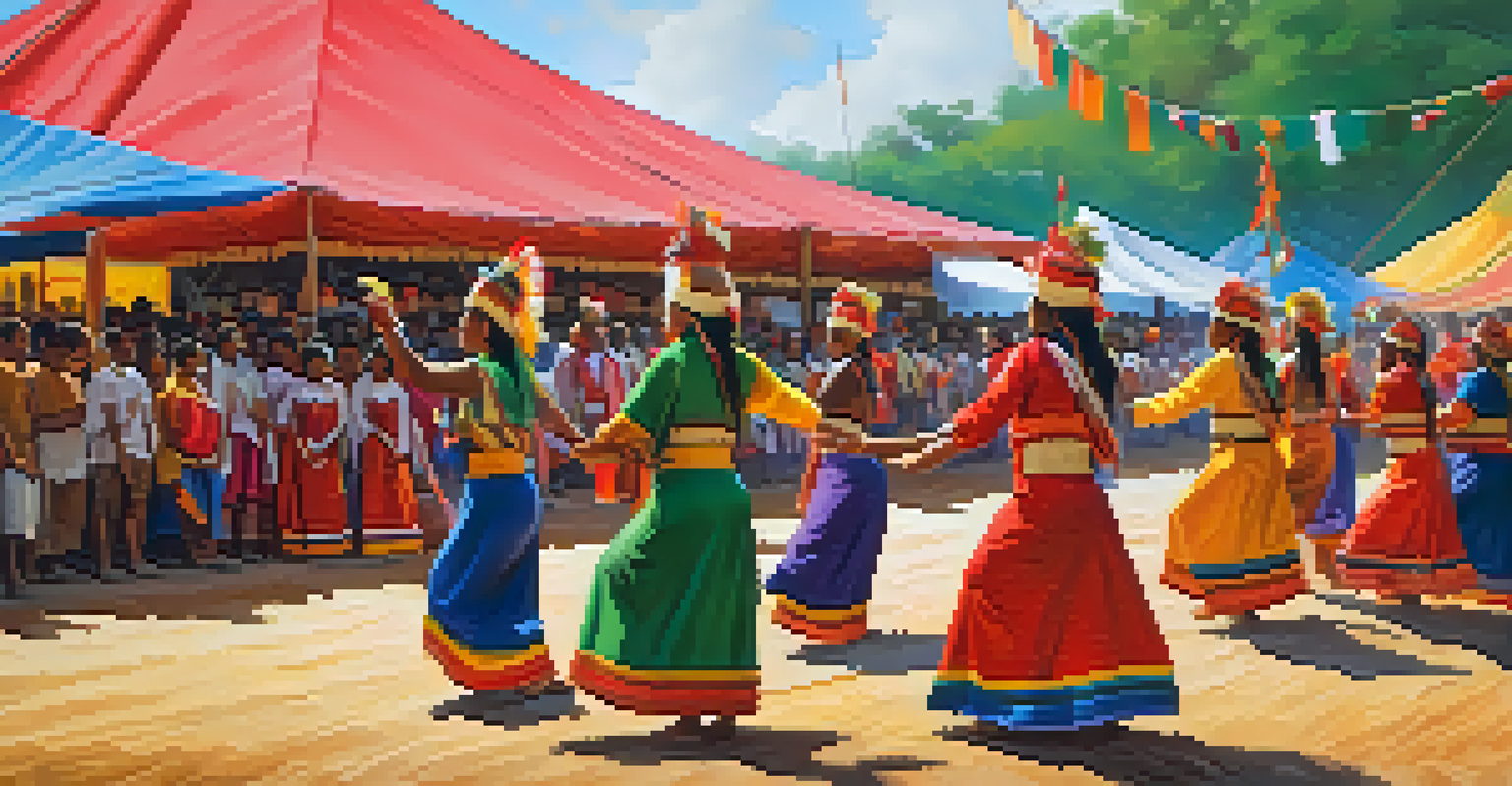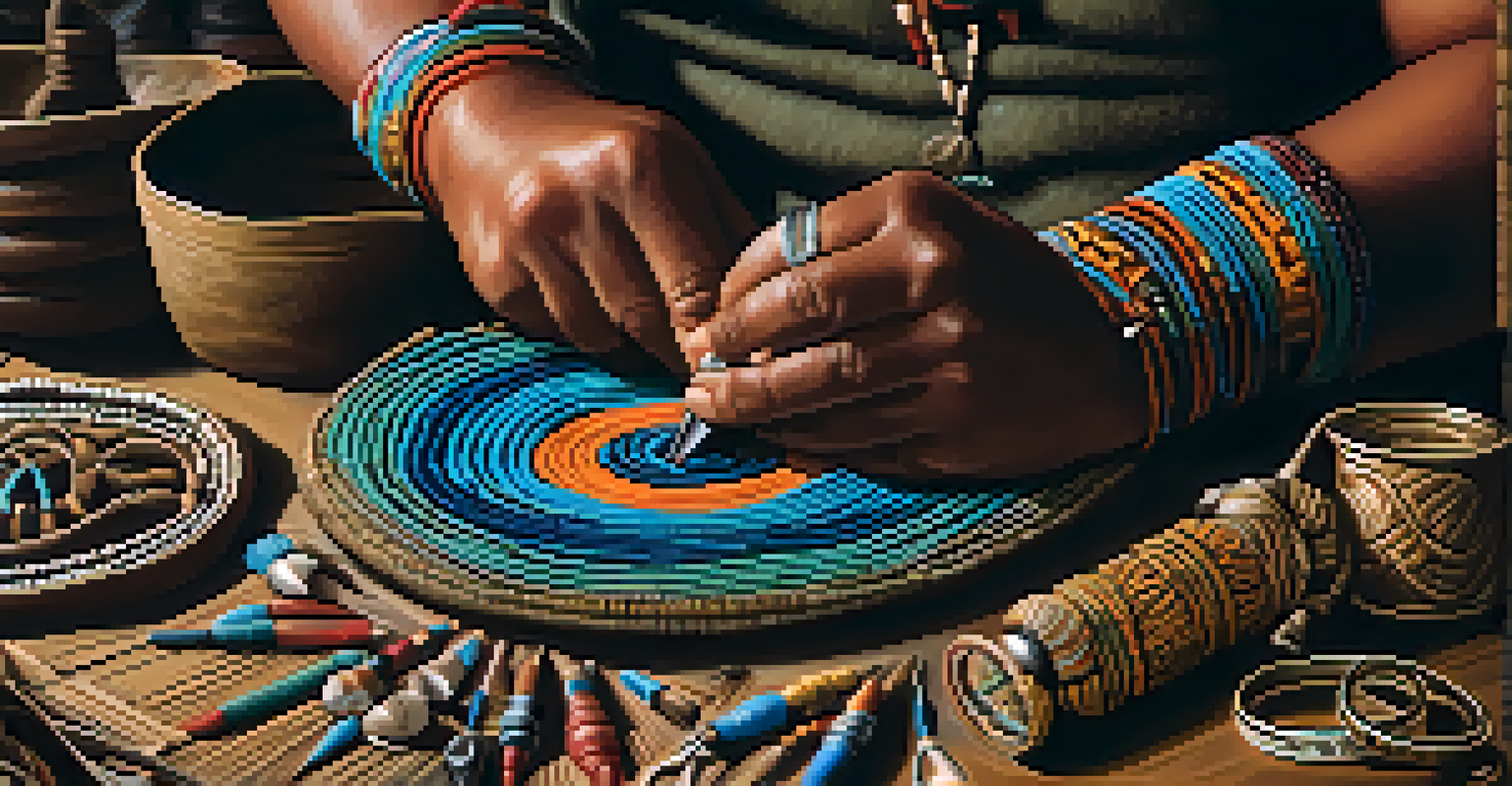Respecting Indigenous Cultures: What Every Traveler Should Know

Understanding Indigenous Cultures: A Traveler's Responsibility
When you travel, it’s essential to recognize that you’re stepping into someone else’s home. Indigenous cultures are rich and diverse, with histories that span thousands of years. It's not just a backdrop for your vacation; it’s a living culture that deserves respect and understanding.
Traveling – it leaves you speechless, then turns you into a storyteller.
To truly appreciate Indigenous cultures, take the time to learn about their histories, traditions, and values. This knowledge can enhance your experience and allow you to engage in more meaningful ways. Remember, each Indigenous community has its own unique identity, so avoid generalizations.
Approaching your travels with an open mind and a willingness to learn fosters mutual respect. This attitude not only enriches your journey but also honors the people and places you visit, allowing for a more authentic and respectful interaction.
Research Before You Go: Knowledge is Key
Before embarking on your journey, do some research about the Indigenous cultures in the area you plan to visit. This includes understanding their customs, traditions, and any specific protocols they may have. Knowledge empowers you to navigate these cultures respectfully.

Look for resources created by Indigenous people themselves, such as websites, documentaries, or books. These sources often provide insights that are both accurate and relevant, enhancing your understanding of the culture. Engaging with Indigenous voices is crucial to avoid misconceptions.
Respect Indigenous Cultures
Travelers should approach Indigenous cultures with respect, understanding their unique histories and traditions.
Additionally, familiarize yourself with any current issues facing these communities, such as land rights or cultural preservation. Being aware of these matters shows respect and can help you engage in conversations that matter, making your interactions more meaningful.
Support Indigenous Businesses and Artisans
One of the best ways to respect Indigenous cultures while traveling is to support local businesses and artisans. This not only helps the community economically but also promotes the preservation of their cultural practices. Look for shops that sell authentic Indigenous crafts, foods, and experiences.
We do not inherit the earth from our ancestors; we borrow it from our children.
When purchasing items, ask questions about their significance and the stories behind them. This shows genuine interest and respect for the culture. Remember, not all souvenirs are created equal, and supporting ethical sources helps combat cultural appropriation.
Additionally, consider participating in guided tours led by Indigenous people. These tours often provide unique perspectives and deeper understanding of the culture, landscapes, and histories, ensuring your travel experience is both educational and respectful.
Participate Respectfully: Engage with Cultural Events
If you have the opportunity, attend Indigenous cultural events or festivals. These occasions offer a chance to witness and participate in traditional practices, music, and art. However, participation should always be approached with respect and understanding of the event's significance.
Before attending, check if the event is open to the public or if there are specific protocols you should follow. Being mindful of the culture's customs will not only enrich your experience but also show respect for the community hosting the event.
Support Local Indigenous Businesses
Engaging with and supporting Indigenous artisans and businesses fosters economic growth and cultural preservation.
While enjoying these cultural festivities, remember to be an observer and a learner. Engage with the community members in a way that honors their traditions, and avoid behaviors that may be seen as disrespectful, such as taking photos without permission.
Respect Sacred Sites: Know Before You Go
Many Indigenous cultures have sacred sites that hold deep spiritual significance. When visiting these areas, it’s imperative to approach them with the utmost respect. Some sites may have restrictions on access or photography, so always be sure to follow the guidelines.
Research these sacred locations in advance to understand their importance and the customs associated with them. This knowledge will help you appreciate the site beyond its aesthetic value and recognize its role in the community's identity.
If you're unsure about what to do, don’t hesitate to ask locals for guidance. They can often provide insights into how to behave appropriately, ensuring your visit honors both the site and the culture it represents.
Cultural Appropriation vs. Appreciation: Understanding the Difference
Cultural appropriation happens when elements of a culture are taken out of context and used without permission or understanding. It’s crucial to distinguish between appreciation, which involves respect and homage, and appropriation, which can be exploitative and harmful.
To appreciate a culture, engage with it in a way that honors its significance and origins. This could mean learning traditional dances or songs under the guidance of Indigenous teachers rather than mimicking them without context. Always prioritize authenticity and respect.
Distinguish Appropriation from Appreciation
Understanding the difference between cultural appropriation and appreciation is crucial for respectful engagement with Indigenous communities.
By understanding this difference, travelers can ensure their actions contribute positively to Indigenous communities. Embracing appreciation fosters a respectful relationship and promotes cultural exchange rather than appropriation.
Listen and Learn: Amplifying Indigenous Voices
One of the most effective ways to show respect is to listen to Indigenous voices and experiences. Engage with local leaders, artists, and community members to learn about their stories and perspectives. This not only enriches your understanding but also empowers those voices.
Consider attending workshops or talks led by Indigenous people, as these can provide deeper insights into their cultural contexts and current issues. Listening creates space for dialogue, and it signifies that you value their contributions to society.

By amplifying Indigenous voices in your travels, you contribute to their visibility and recognition. This respectful engagement can lead to more profound connections and a more authentic travel experience.